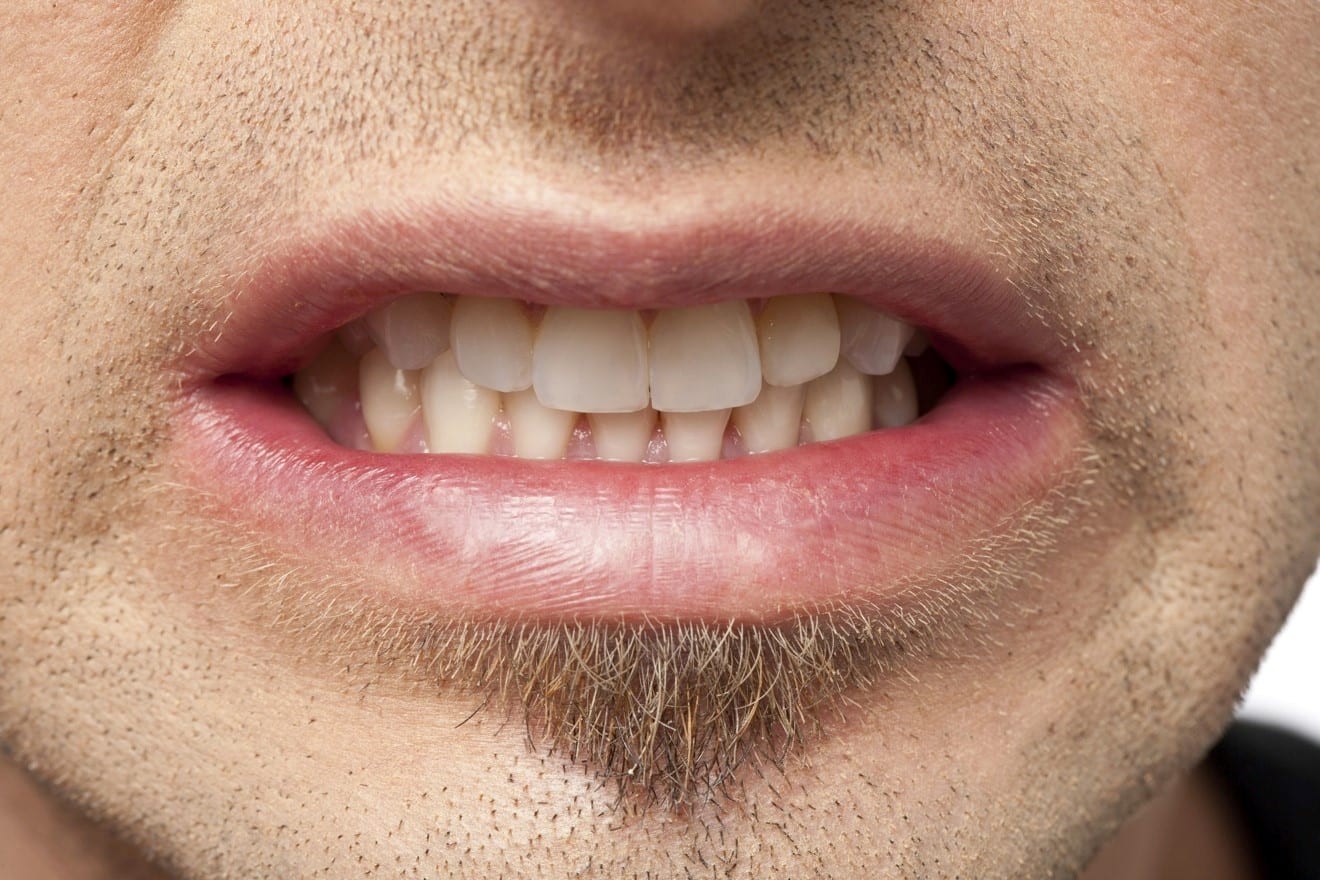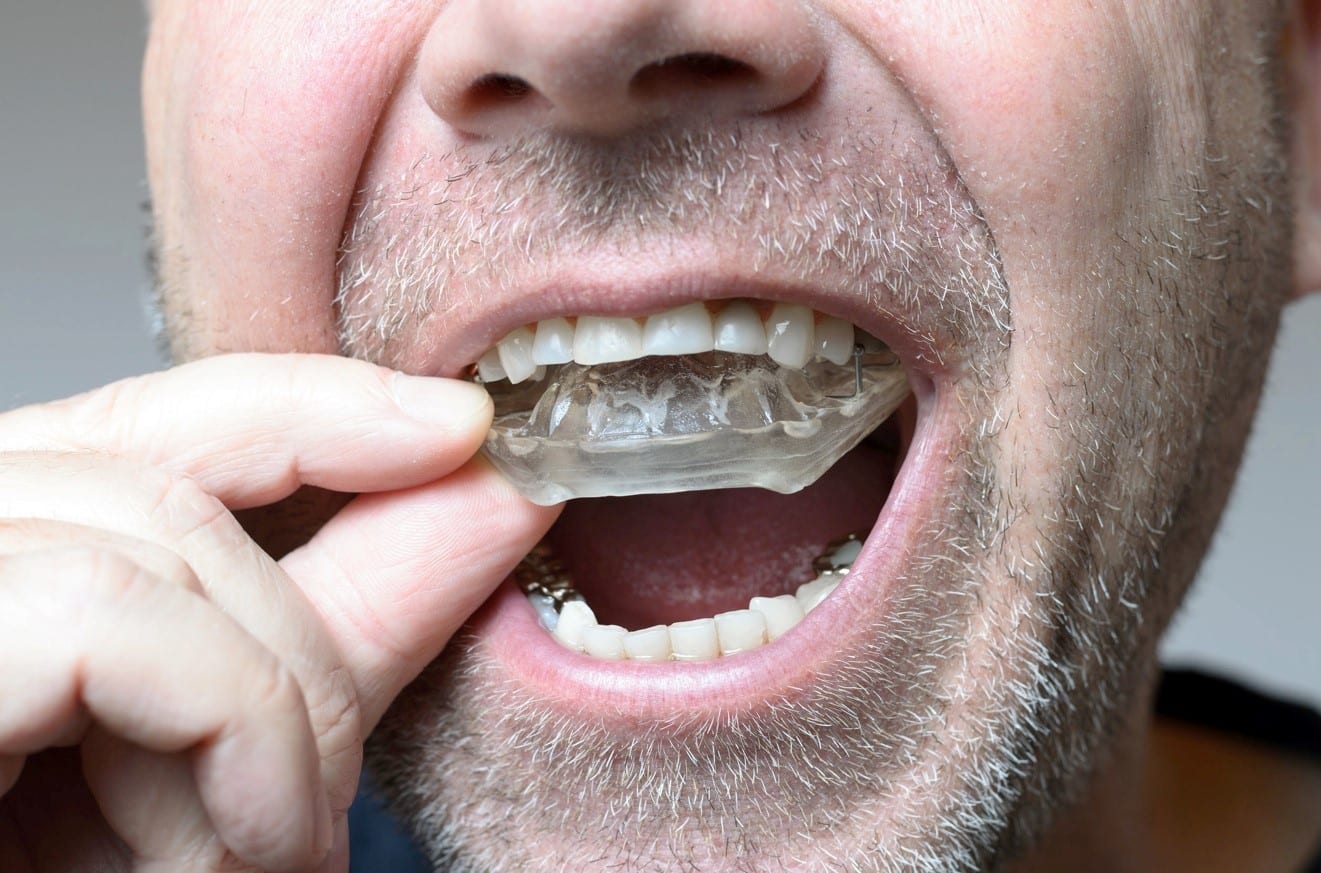
Some people snore. Some talk in their sleep. Some push their partners off the bed or kick them. If you grind your teeth, though, you don’t just have a habit that’s amusing or annoying your partner – grinding your teeth (also known as bruxism) can lead to serious side effects. Left untreated, grinding can leave you with teeth that are sensitive, cracked, or otherwise damaged.
Luckily, there’s something you can do to protect your teeth. Below we’re going to go over both the causes of bruxism and how a cosmetic dentist can help you to stop grinding your teeth at night.
Causes of Bruxism
Bruxism affects 10-15% of adults. Many adults who grind their teeth wake up the next morning with a headache, sore jaw, or pain around the teeth. Bruxism is caused by a variety of factors, including:
- Anxiety and Stress: Many people hold a lot of stress and tension in their jaw. Even if you close our eyes as a way to de-stress (or ignore the things that are stressing you out) anxiety will still follow you into your sleep. Clenching your jaw puts you at a higher risk for grinding your teeth.
- Tooth Misalignment: Misaligned or crooked teeth may not seem like a huge deal when you’re awake and can control your jaw, but while you sleep, issues with your jaw muscles may cause spasms. If your dentist mentions you have “malocclusion,” a fancy word for misaligned teeth, you have a higher risk for grinding your teeth at night.
- Medications or Other Medical Conditions: Bruxism may be a side effect of certain medications, including antidepressants. Medical conditions (including Parkinson’s, Huntington’s Disease, or sleep apnea) can also cause bruxism.
What Can Help Bruxism

The solution for bruxism will depend largely on what is causing you to grind your teeth at night. Other factors, including insurance or the need for your medication, may also play a factor. Be sure to talk to a dentist when you are weighing the changes you make or treatments you pursue, including:
- Night guards: Night guards are put in your mouth at night to keep your teeth from making contact. Over-the-counter options are available, but your dentist can provide you with a custom night guard designed to conform perfectly to your teeth and jaw. Because of this, custom night guards tend to be more comfortable.
- Full mouth rehabilitation: If your teeth are misaligned, it might take braces, expanders, or retainers to halt bruxism. If your jaw is the root of the problem, a dentist might recommend treatments for full mouth rehabilitation. These procedures include removing old dental work and restoring your teeth and bite.
- Treating anxiety or stress: A night guard will be able to prevent teeth grinding that is caused by stress, but it is also useful to treat the underlying causes of your stress. If you aren’t sure what is causing your stress or how to deal with it, talking to a professional can help.
- Changing your diet or medications: What we consume affects our entire body. For example, having caffeine in your system can cause tension or muscle spasms. As mentioned earlier, certain medications may lead to bruxism as well. Talk to your doctor about the possibility of changing your diet or switching to a medication that will reduce the risk of grinding your teeth at night.
Don’t let your grinding lead to cracked or damaged teeth. Start treating bruxism now by contacting a South Florida dentist and talking about your teeth grinding habits.






